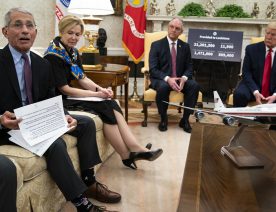
Most Americans continue to view local restrictions imposed in response to the coronavirus outbreak as appropriate, and a majority are concerned that lifting restrictions will result in additional infections. A number of requirements like quarantining people who have been exposed to the virus, face masks, widespread testing, and physical distancing are seen as essential conditions for safely reopening their area.
Overall, 54% say the restrictions put in place in their area are about right to prevent the spread of the coronavirus, down from 61% last month. Eighteen percent think they go too far and 27% say they don’t go far enough. Republicans are more likely than Democrats to regard the restrictions as excessive, but a majority in both parties still feel they are appropriate.
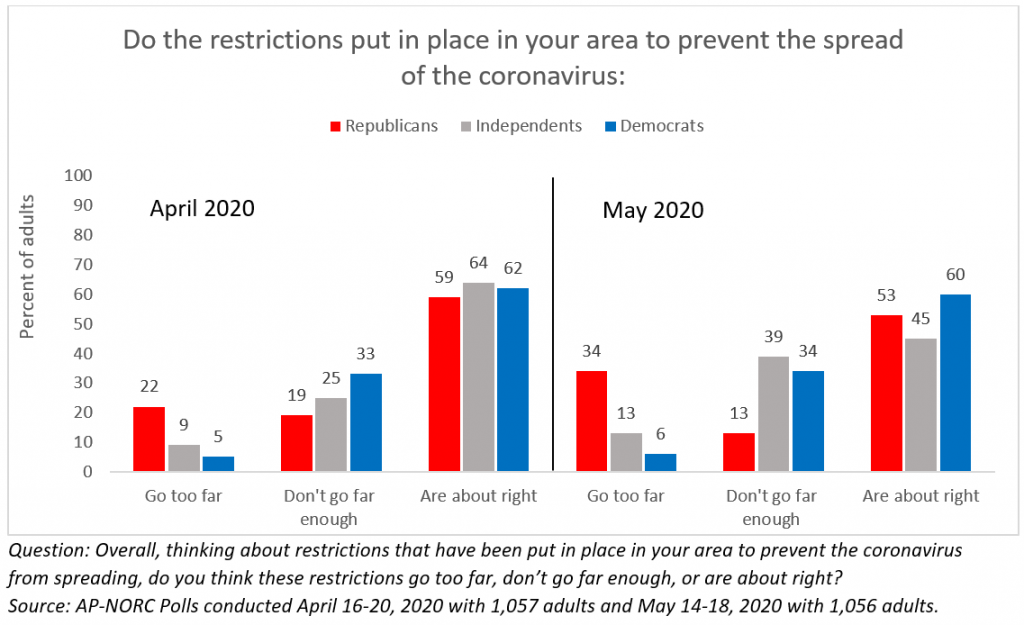
Many are concerned that removing these restrictions would lead to increased infection rates. Overall, 54% are extremely or very concerned that lifting restrictions in their area will result in more people being infected, while 29% are somewhat concerned, and 16% are not very or not at all concerned. Democrats are particularly worried about the effect of canceling restrictions, while Republicans express lower levels of concern.
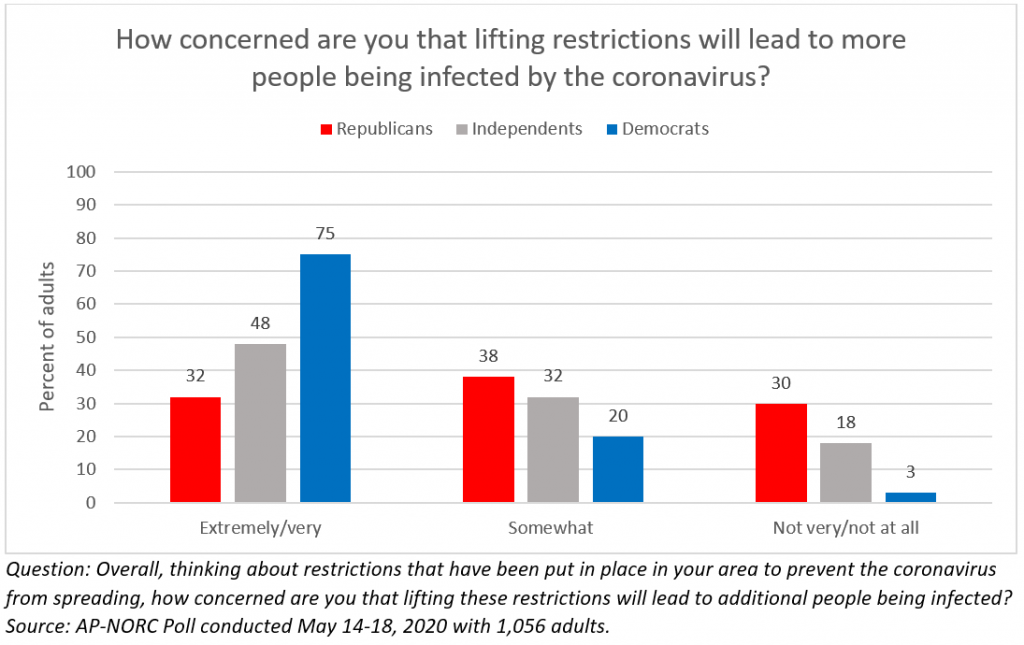
The public sees a number of actions and policies as essential before limits on social and economic activities can be safely lifted. Processes for the mandatory quarantine of exposed individuals tops the list of essential actions needed for the public to feel comfortable.
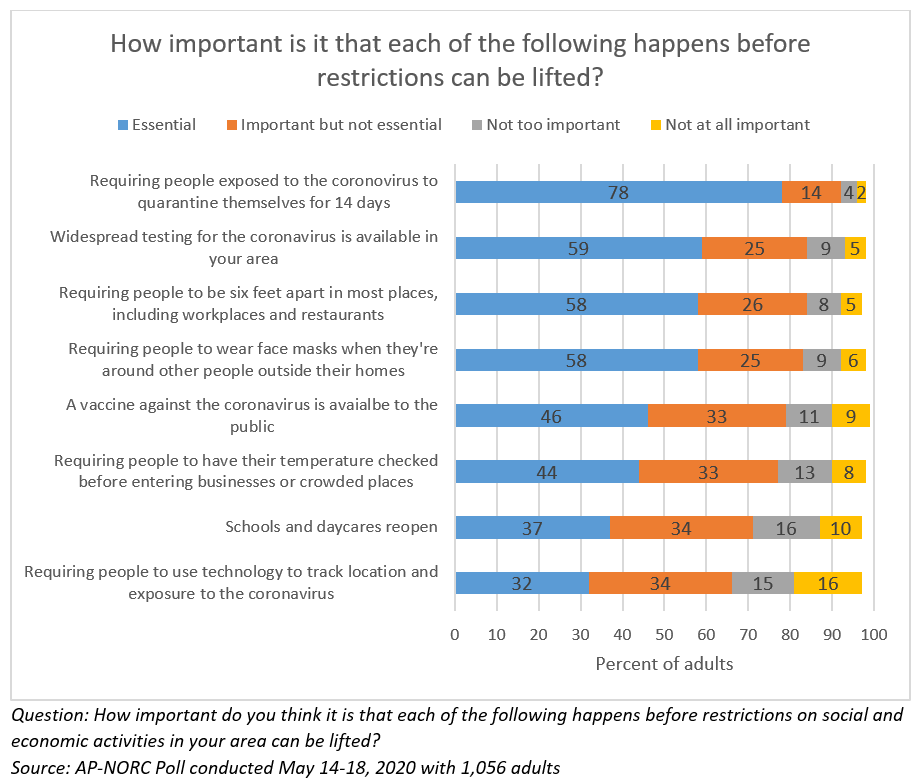
As with assessments of the restrictions currently in place, there are partisan differences on what needs to happen for a safe re-opening. For example, while 75% of Democrats say it is essential that people be required to wear face masks before restrictions are lifted in their area, only 37% of Republicans agree. But majorities in both parties agree on the importance of some conditions, like quarantining anyone who has been exposed to the virus (87% of Democrats and 68% of Republicans).
The availability of a vaccine is considered essential by 46% and important, but not essential by another 33%. Few expect a vaccine to be available to the public before the end of the year, regardless of party identification. Only 20% think a vaccine against the coronavirus will be offered to the public before the end of 2020, while 61% expect it to be available sometime during 2021. Another 17% think it will take longer than that to develop a vaccine for this virus.
Social distancing measures like closing bars and restaurants, limiting trips out of the house, keeping gatherings under 10 people, and restricting travel within the United States continue to have broad support. However, support has been declining, especially among Republicans.
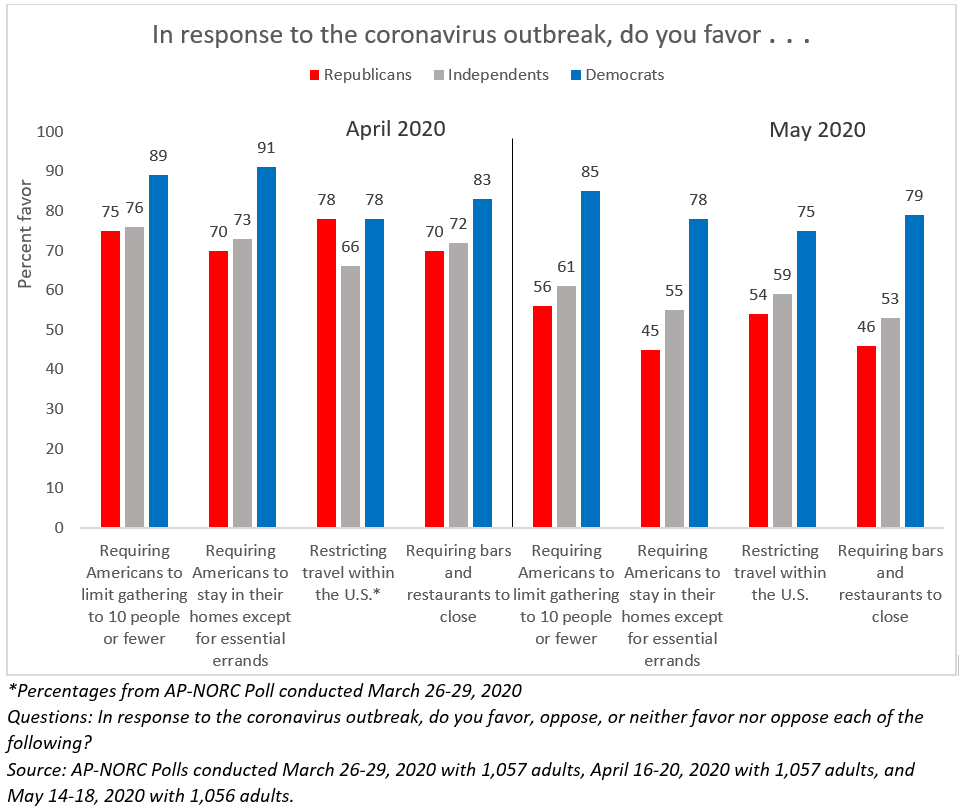
Many Americans remain concerned about being infected themselves or someone in their family being infected by the virus, with 42% saying they are very or extremely worried, and another 31% are somewhat worried.
The nationwide poll was conducted May 14-18, 2020 using the AmeriSpeak® Panel, the probability-based panel of NORC at the University of Chicago. Online and telephone interviews using landlines and cell phones were conducted with1,056 adults. The margin of sampling error is plus or minus 4.2 percentage points.


